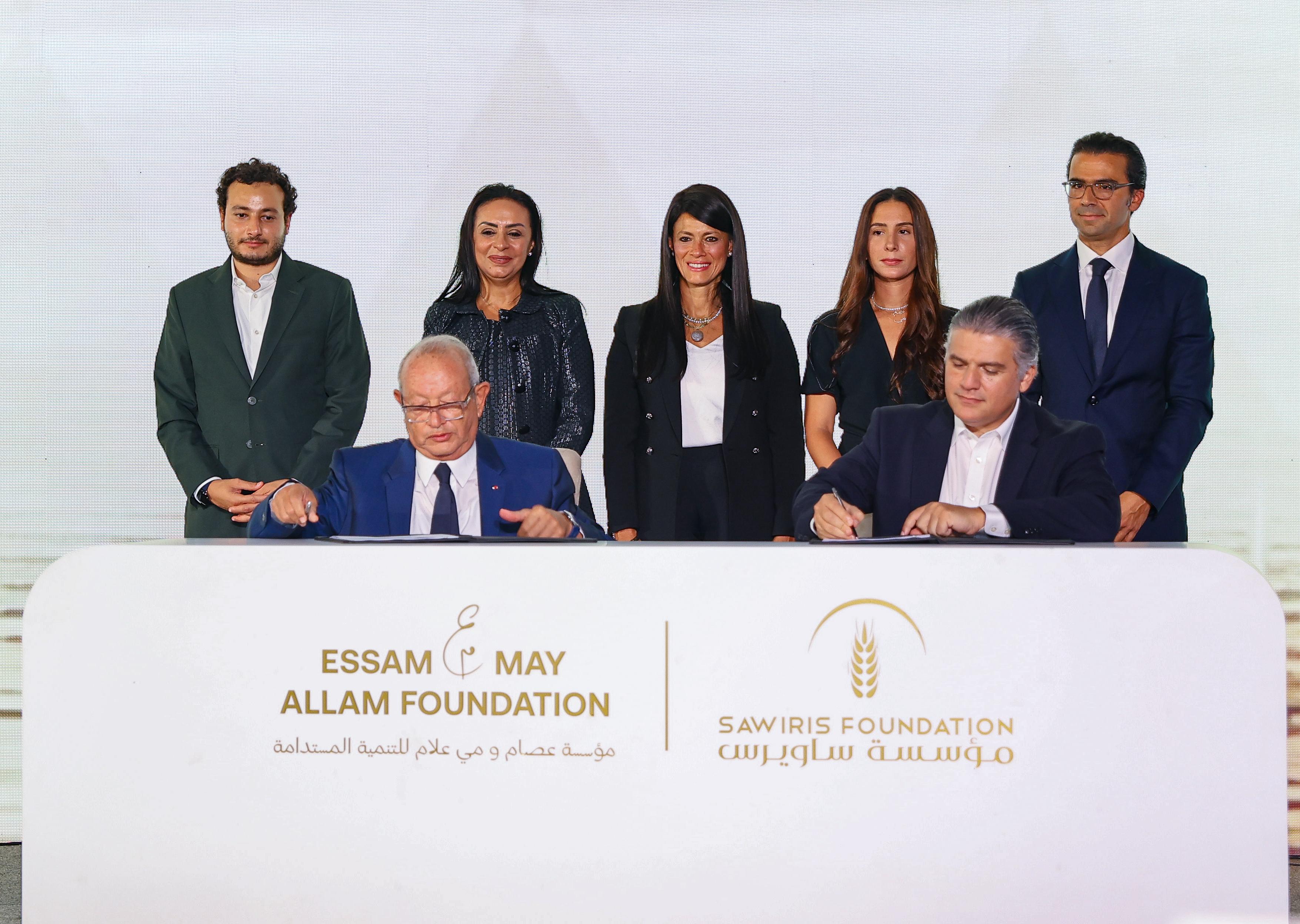Al-Mashat:
● “The Egyptian government supports civil society organizations in enhancing their role in achieving economic development.”
● “Civil action in Egypt has a long history of developmental partnerships and integration to reach all governorates.”
H.E. Dr. Rania A. Al-Mashat, Minister of Planning, Economic Development and International Cooperation, witnessed the signing of a strategic partnership between the Sawiris Foundation for Social Development and the Essam and Mai Allam Foundation for Sustainable Development.
This four-year partnership (2025–2029) aims to strengthen the efforts of both foundations in three key areas: education, agriculture, and community development. The agreement was signed by Eng. Naguib Sawiris, Founder and Vice Chairman of the Board of Trustees of the Sawiris Foundation for Social Development, and Eng. Hassan Allam, Founder and Chairman of the Board of Trustees of the Essam and Mai Allam Foundation for Sustainable Development.
The signing ceremony was attended by Dr. Maya Morsy, Minister of Social Solidarity; Amb. Sameh Shoukry, former Minister of Foreign Affairs; Dr. Hala El-Said, Economic Advisor to the President of Egypt and former Minister of Planning and Economic Development; Dr. Ghada Waly, former Under-Secretary-General of the United Nations and Executive Director of the United Nations Office on Drugs and Crime; and Amb. Nabila Makram, Head of the Technical Secretariat of the National Alliance for Civil Action. Several representatives from both foundations and the wider civil society sector were also present.
As part of the event, H.E. Dr. Al-Mashat participated in a panel discussion alongside Eng. Naguib Sawiris, Eng. Hassan Allam, and Amb. Eric Chevallier, the French Ambassador to Egypt.
H.E. Dr. Al-Mashat stressed the importance of the partnership between the Sawiris Foundation for Social Development and the Essam and Mai Allam Foundation for Sustainable Development, noting that its three pillars—education, agriculture, and community development—are priority areas within the state’s development vision. She further underlined that, internationally, civil society organizations have become indispensable partners to governments and the private sector, providing resources, bridging funding gaps for the Sustainable Development Goals (SDGs), and extending support to the most vulnerable groups.
Dr. Al-Mashat reiterated that the Egyptian government supports civil society organizations in strengthening their role in driving economic development. She highlighted that civil action in Egypt has a long and rich history of developmental partnerships and integration, enabling outreach across all governorates.
The Minister also pointed to the Ministry’s longstanding collaboration with the Sawiris Foundation for Social Development, particularly in establishing the Abdul Latif Jameel Poverty Action Lab (J-PAL) office in Egypt. This partnership supports evidence-based policymaking to combat poverty and reinforces the Ministry’s commitment to strengthening cooperation between civil society and international partners, thereby expanding the social safety net and advancing development goals.
Dr. Al-Mashat emphasized the role of J-PAL in assisting governments with rigorous field experiments and building partnerships grounded in evidence-based policymaking. J-PAL also works to scale up successful programs and assesses the social impact of policies and initiatives across the Middle East and North Africa in nine key sectors: labor markets, business, finance, gender, health, education, social protection, environment and climate change, and humanitarian action.
She further highlighted Egypt’s role as a platform for international cooperation that brings together the private sector, government, and civil society organizations to advance sustainable development. This cooperation focuses on critical issues such as agriculture, education, and multidimensional poverty. Concluding her remarks, H.E. Dr. Al-Mashat stressed that the state’s role is to make data available to identify the most vulnerable communities and ensure that development efforts reach those most in need.
